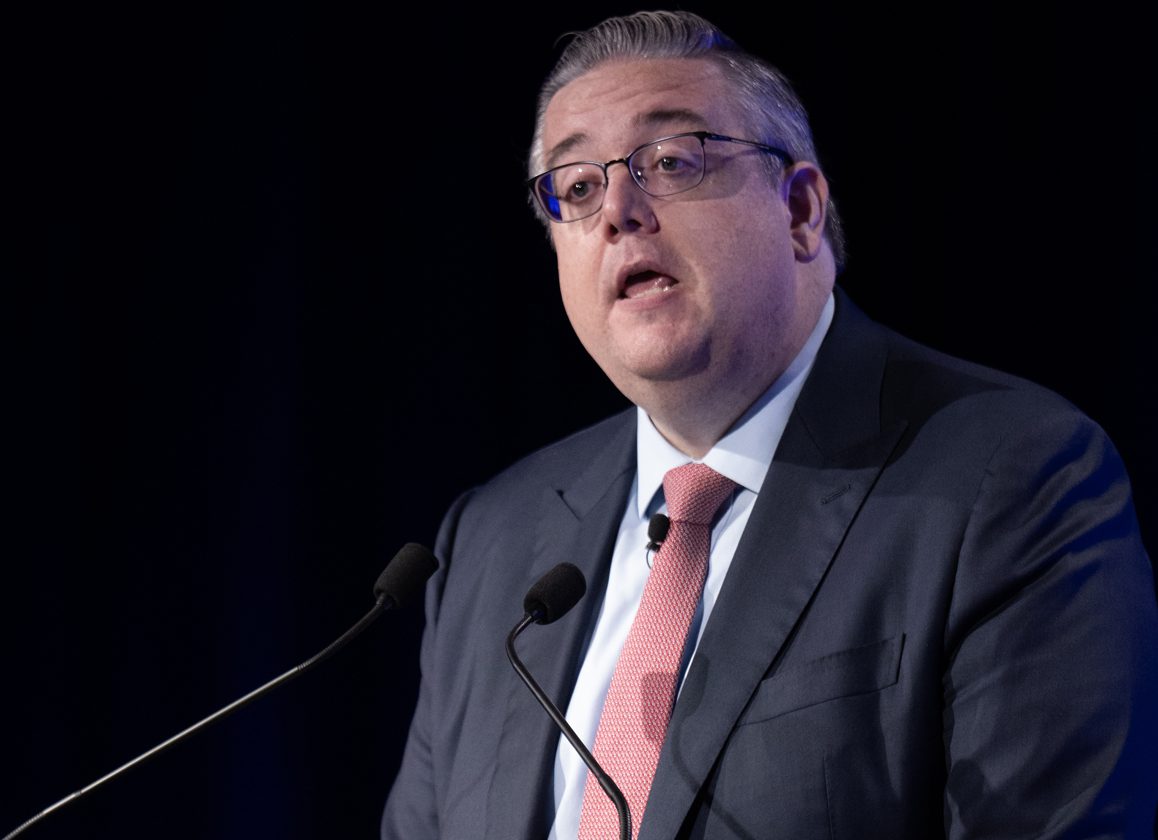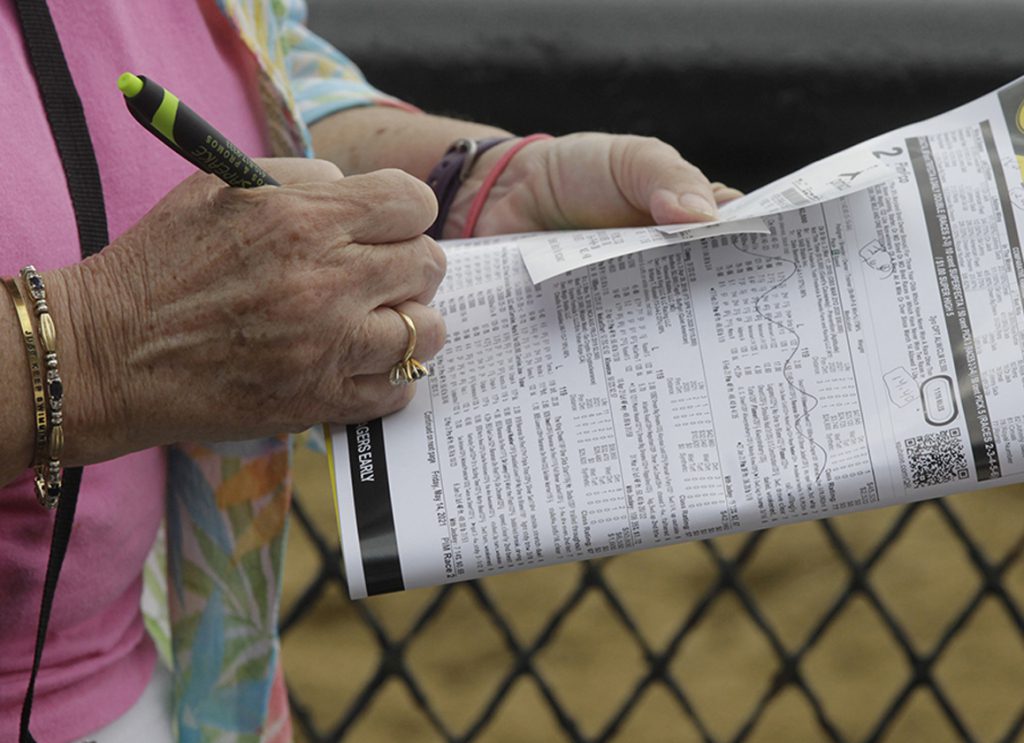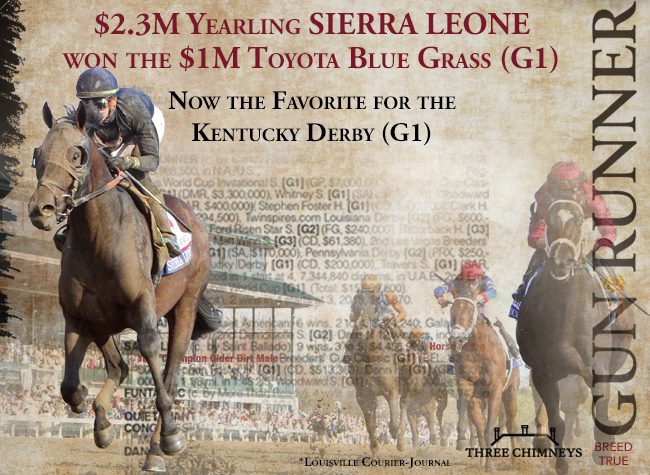By Dan Ross
Late last month, owner Mike Repole announced the formation of the National Thoroughbred Alliance (NTA), an organization charged with providing emergency triage to an industry struggling with fiscal ill-health for quite some time.
For executive director of the NTA, Repole tapped Pat Cummings, who previously headed the Thoroughbred Idea Foundation, an organization focused on instituting change for racing's primary customers, the horseplayers and horse owners.
At a press conference for the NTA's launch, Repole discussed his intentions in broad over-arching terms that were light on specifics.
To put some meat to the organization's bones, the TDN spoke last week with Cummings.
It's clear that the NTA–only a few weeks into its infancy–is still very much a work in progress. Details are still light, but key areas of concern are swimming into focus.
Indeed, Cumming's comments reveal an approach to tackling the industry's ills similar in effect to the “” model of policing–in other words, focus on the important little details, and the bigger picture will invariably right itself.
The following is a heavily edited version of a much longer, more discursive conversation.
TDN: How would you describe the organization's overall mandate?
Pat Cummings: I think we could reasonably say this is probably the most challenging period in American racing history. When you put all the metrics together and look at everything else that has changed beyond the business entertainment options, how consumers spend their discretionary income, the ease with which one can be entertained or wager is so dramatically different. But nearly every metric of the racing business is going in the wrong direction. Purses have grown. But I think everyone knows that the purses are coming from sources that have nothing to do with racing directly. It has everything to do with the other gambling businesses that have been created. I think Pennsylvania is a great example of this.
In less than 20 years, over $3.5 billion has gone to purses, but is the Pennsylvania horse racing industry better? Are the breeders really better? Are the owners there better, stronger? Is the product better? Is wagering? Purses have kept it going, but have they really helped change the trajectory of the business?
I don't think so.
There is no one person to blame for our sport's issues. There is no one organization to blame. Our struggles are entirely collective.
Everyone wants change to happen faster. It hasn't been happening. So, is it possible that the NTA could create a vehicle to assist these many different types of organizations, these many different racing offices or racing operators? Create a resource that can help them facilitate change?
We want to fill gaps that currently exist–create some entities that are going to offer some immediate assistance to groups, tracks within the industry, to help them do things they haven't been able to do.
The blueprint for this is not drawn up. It doesn't exist. There is no history of having done this, right?
TDN: Are you bringing over any tactics from the Thoroughbred Idea Foundation?
The difference–and I don't want to compare everything to what we've done with Thoroughbred Idea Foundation–but if there is at all a modicum of context that we can use to position the NTA going forward, then take a look at what happened when one owner and some generous board members said, 'Pat Cummings, change things that haven't been changed before.'
As a result, bettors have received millions of dollars from betting on Kentucky racing [due to the breakage reforms within the state legislature] that they wouldn't have received already. And that's essentially in perpetuity until someone decides to change a law again.
It can be done. You just have to figure out a creative way to do it. That was just one small change in one state. The impact can be so much greater with the opportunity to build a team which I didn't directly have with TIF. It was all very self-directed with Craig's [Bernick] investment and some of the board's assistance.
TDN: What industry sectors are you zeroing in on first?
Conceptually, everything must be on the table, right? Can you help in areas like racing office management? Can you help sales companies unify and improve their approach?
I've spent years focused on wagering and now, more than ever, I'm convinced that racetracks are not studying the performance of their customers. How are they doing? How are they doing relative to takeout rates? If they were studying that, our wagering menus should not look like they do today because our bettors are getting crushed. They're absolutely getting crushed.
We have had this conversation for years about the importance of takeout rates. But I have seen bettors in certain pools, some with very low takeout rates, at certain tracks in America where every customer except the high-volume bettors are monumentally worse off. Their return on investment is dramatically worse than the actual takeout rate.
We have driven our customers 'successfully,' tongue in cheek, to bets they're unlikely to win. And in a pari-mutuel wagering environment, that is devastating to building the business. The goal of the pari-mutuel betting operator should be to bring your customer back.
Pari-mutuel wagering is essentially a ticket to print money. If you can keep your customers happy, right, then keep them happy, keep them winning,
In other words, we need to rethink our approach to wagering and the wagering business.
You've got to change. You've got to look at your business in a different way. For racing, sales, breeding, education, marketing, aftercare and of course, wagering–we cannot be inhibited to try new things, obvious ideas, with a goal of improving outcomes for everyone.
It is impossible to be against that given our collective performance.
TDN: Is it primarily wagering that you're focused on?
No. Again, everything must be on the table. How much money is every stakeholder in the sport losing out on by having one fewer horse per race than we did 15 years ago?
We're averaging just over seven horses per race. What does total handle look like if we get to eight horses per race? How many starts does a horse lose per-year because their races didn't go this week, and didn't go the next week, or the week after?
Let's say I had a horse ready to go at peak fitness but our race didn't go until two weeks later. Almost regardless of where that horse finished, we may have missed the opportunity. If these delays happen two or three times a year, I may have missed multiple opportunities to run and potentially win.
So, can we find a way to introduce policies or help existing racing offices help the trainers find spots where their horses are going to run? Give them that extra start? If we can do that, we can present bettors with a more complete package.
We also need to institute a culture of transparency across the sport.
The American racing's equivalent of the referee does not get on the microphone and say, 'here's what happened. Here's the outcome. Have a nice day.' When they suspend a jockey, they don't go into public detail about why that suspension occurred. Those things need to be much more open and transparent.
Transparency encourages participation.
It's good for new owners and existing owners. Transparency keeps everyone motivated to do the right thing. Horseplayers want transparency to have more information–a more informed customer base carries tangible, financial benefits for everyone else associated with the sport. If anyone is against this, they are against growth and progress.
TDN: How is this going to differ from the Thoroughbred Idea Foundation?
This will be bigger–it is already bigger than TIF in terms of what it wants to accomplish.
Look, it's a very difficult thing to talk about one week into it, but what I was saying was, I think from the hot walkers to the stallion deal makers, everyone in the business wants to see it improve–wants the financials to improve for everybody. That's part of it.
If you're not interested in growing the overall business, that's going to be a problematic position for us. And I think Mike has said from the start, 'if we're sitting down with people in the business, we're going to tell you here's who we sat down with. Here's who we talked to.'
So, everything we want, we believe is positive. It's going to increase the pie as opposed to increasing the fighting over a diminishing pie.
We've had decades of fighting over a smaller pie. That has to end. Let's focus on growing the pie for everyone. I'm thankful for everyone who has reached out so far, but I hope when we start returning calls or sending emails, that everyone is picking up and responding. I don't know how anyone could be against what we want to achieve.
TDN: What will your team look like?
Mike has said that we're looking to probably hire three to five people that'll be on board in a full-time capacity to help us to get this going. We may rely on a network of consultants to help with this, too.
Here's the reality. We're looking for good people who have an interest and a desire to improve the horse business and have some proven abilities. To have grown or to have driven growth and have proven to be able to think outside the box. Creativity will be key. If that's been done directly in the racing business or not, those are the people we seek to engage.
I've got a hundred resumes already. And I can honestly say I've probably looked at six or 10 just because of how busy it's been in these first few days. Post Breeders' Cup, we'll have a chance to really sit down, look at them.
And for those who are interested, send us an email at [email protected]. Send us a resume.
TDN: What's going to make you stand out from the alphabet soup of organizations out there?
You could look at it and say, 'in 2018, what's going to make TIF different from any other organization?'
Well, we said we're here to research ideas and we want to execute them. How? Well, we said we're going to write some foundational papers that serve as the baseline for our advocacy, and then we're going to go out and advocate and we're going to find the right people that can help us execute this vision.
[To get the breakage reforms passed in Kentucky], we had a lunch with Adam Koenig, a [state] representative from Northern Kentucky, and with Damon Thayer, the Senate majority leader in Kentucky.
We had a lunch in Lexington. We just talked about it. That day wasn't the time to get anything accomplished. But three years later, the opportunity was there–as part of the reform package, a word was changed on breakage from the dime to the penny. That was the opportunity.
Ultimately, I would like to think it is creating and assisting change in areas that have not experienced any. If you're committed to the future of the sport, you should want to work with NTA. I hope racetrack operators come to us and say, 'please help us be better.' If they aren't coming to us yet, we will go to them. We have no choice but to be better.
TDN: How do you hope to navigate competing egos?
I don't think ego comes into the equation when survival is at stake. The question is, how are you going to get the big things right if we have so many little things wrong?
It's going to take a substantial effort by all the well-intentioned, dedicated players across our sport. Everyone must start focusing on their own areas and getting little things right first. The rest becomes easier after that.
Not a subscriber? Click here to sign up for the daily PDF or alerts.







